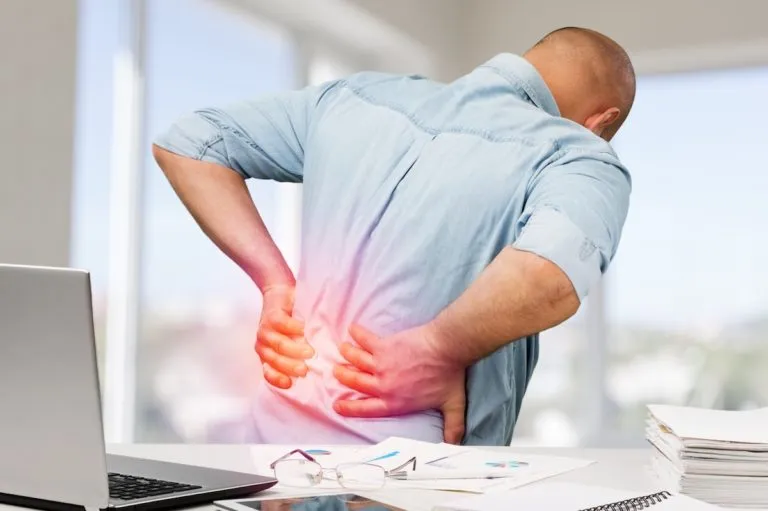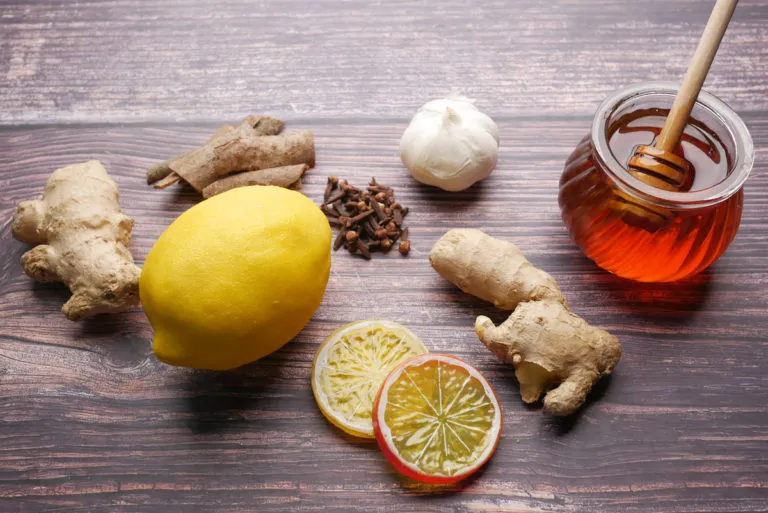Updated on 2. February 2022 from ÁYIO-Q Redaktion
Reading time: approx. 15 minutes
Bladder inflammation: Constant urge to urinate, burning and pain – Why does inflammation of the bladder occur? What are the causes, symptoms and risk factors? What can be done about it?
In this article you will learn what exactly cystitis is, how you can prevent acute cystitis and if you suffer from it, how to properly treat an inflammation of the bladder. Most of the time, simple natural remedies are enough, but every now and then it has to be antibiotics.
- Definition
- Causes
- Symptoms
- Diagnosis
- Risk factors
- Therapies & cures
- Orthodox medicine
- Alternative medicine
- Prevention
- Psychosomatics
What is bladder infection/cystitis?
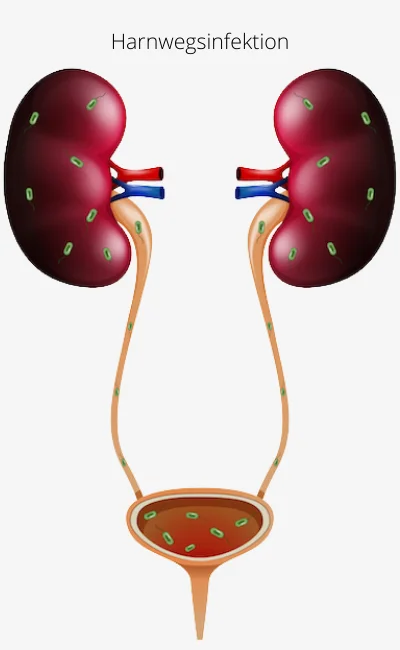
Cystitis is an infection of the urinary bladder and belongs to the group of urinary tract infections (UTI) caused by bacteria, but in rare cases also by viruses or fungi. Depending on the aetiology (cause), a distinction is made between bacterial and abacterial cystitis. The pathogens enter the bladder through the urethra and cause an inflammation of the mucous membrane or of the entire bladder wall, which is accompanied by a constant urge to urinate, burning when urinating and cramping complaints in the lower abdomen.
UTI can be acute or chronic and can recur again and again. Based on its course, the forms of uncomplicated, complicated and recurrent cystitis can be distinguished. Uncomplicated cystitis is when the infection is limited to the bladder. Complicated cystitis is when the infection spreads to the upper urinary tract or even causes inflammation of the renal pelvis. If at least two infections occur within six months or three infections within one year, we speak of recurrent urinary tract infections.
Bladder infection is a widespread disease
Bladder infections are among the most common infectious diseases and affect a large number of people, especially women. 50 to 70 per cent of adult women contract an inflammation of the urinary tract at some point in their lives. In about one third of affected women, the urinary tract infection recurs.
Cystitis is a relatively common condition in children aged six months to six years. About 7% of girls and 2% of boys under the age of six are affected by cystitis at least once.
Men, on the other hand, get cystitis less often than women because they have a longer urethra, through which bacteria cannot enter the bladder as easily. After the age of 50, they occur more frequently as prostate problems increase.
Bladder inflammation – A variety of factors can be causative.
By bacteria, called bacterial UTIs, and by viruses, fungi or parasites, called abacterial UTIs. Cystitis, on the other hand, is almost always caused by a bacterial infection. The intestinal bacterium Escherichia coli is the most common cause of bacterial cystitis; it is responsible for bacterial cystitis in about 80 % of cases.
Women are more prone to bladder infections than men because they have a shorter urethra through which bacteria can enter the bladder more quickly. For example, women’s urethra is only about 4 centimetres long, while men’s is about 20 centimetres. Another anatomical disadvantage in women is the close proximity of the urethra and the opening of the bowel. This allows pathogens originating from the colon to enter the urethra more quickly and easily.
The bacteria that cause cystitis are often introduced into the urethra through smear infection from the anus or stool or through sexual contact. A weakened immune system or hypothermia due to insufficiently warming clothing or cold feet favour cystitis. A change in hormone balance after menopause or pregnancy also makes women more susceptible.
Signs and symptoms of cystitis.
The most common cause of cystitis is a so-called lower urinary tract infection, where the symptoms are limited to the lower urinary tract.
Most frequent symptoms:
- pain and burning during urination
- frequent urination
- and frequent urination in small amounts
A bladder infection can occasionally lead to uncontrollable urine leakage. During urination, you may feel a cramping sensation in your lower abdomen. In addition, the urine may be cloudy, smell strange or even contain blood.
If you have fever and pain in the kidneys, it means that the bladder infection has moved to the upper urinary tract. Inflammation of the renal pelvis, among other things, is a likely consequence of such a severe urinary tract infection.
Diagnosis: How to diagnose cystitis
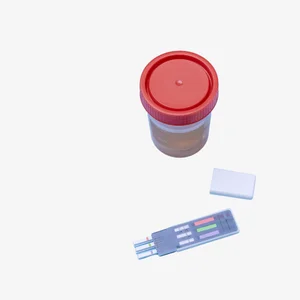
If you think you have cystitis, you can test using a home urine self-test that you can buy over-the-counter at the pharmacy. You will get the result after a few minutes. Make sure that the test is vitamin-C free.

After that, your doctor will ask you to take a urine sample. The urine should be clean. If it is cloudy and smells bad, this indicates an inflammation. For example, the white blood cell (leukocyte) count will be determined. If this is high, the immune system has already been activated to fight the inflammation in the body. Nitrite is a sign of a severe bacterial infection. This test is sufficient for diagnosis if the symptoms are minimal and the result is clear.
A blood test is often done in case of recurrent bladder infections, but also in case of fever, blood in the urine or significant discomfort in the abdomen and kidneys. Other causes, such as a bladder tumour, can be ruled out by a cystoscopy.
Risk factors of cystitis
We do not live in a completely sterile environment. Bacteria, fungi and viruses have been around us since birth. Normally, our immune system defends us against diseases. The mucous membranes lining the urinary tract contain defence cells and antibodies of the immune system. When needed, they wait for germs from the environment to make them harmless. The intruders are recognised and devoured by the defence cells thanks to the antibodies. Bacteria can sometimes be very aggressive and abundant. If the immune system is not working properly, the bacteria can take the defence cells by surprise. As a result of the failure of the immune system, a urinary tract infection develops.
Although most bladder infections are bacterial, some variables and influences can increase the risk of cystitis, such as a cold triggered by damp bathing clothes.
Wet or Cold
In summer: wet clothes
When the body is exposed to cold and damp, the arteries constrict and circulation decreases. Since a poorly perfused mucous membrane is usually unable to fight off an infection, a bladder infection can catch a person off guard. That is why it is important to change wet bathing clothes even in hot weather!
Sexual Encounters
Cystitis can be caused by too much of a good thing: namely, excessive sexual intercourse. It irritates the mucous membranes and the mechanical friction makes it easier for germs to penetrate the urethra, which is particularly short in women.
Too frequent sexual intercourse can increase the risk of recurrent urinary tract infections tenfold.[1]
Metabolic disorders such as diabetes.
Bladder infections are more common in diabetics and women are the most affected. When blood sugar levels are high, the kidneys release glucose into the urine. This is known to be warm and, in combination with the glucose, provides an excellent breeding ground for bacteria, which can multiply more quickly and increase the risk of infection. Diabetes can also cause bladder dysfunction, where the bladder is not completely empty. Cystitis can be made worse by persistent urine retention. It is harder to recognise in diabetics because it rarely causes symptoms.
Additional risks:
- Stress has weakened the immune system
- Lack of sleep and heavy workloads compromise the human immune system and make it more susceptible to diseases such as cystitis
- Excessive personal hygiene
- Smoking, alcohol
- Not drinking enough water.
- false diet
- Hormonal changes (pregnancy, menopause)
- Gout
Therapies & Cures for bladder infections
Treatment of cystitis with conventional medicine.
If increased drinking, heat treatments or self-treatment with herbal remedies do not relieve the cystitis, a visit to the doctor is required. A visit to the doctor is also recommended if:
- after three days the symptoms of cystitis have not subsided
- fever and chills are among the other symptoms of the disease.
- you have kidney problems and your urine is a crimson colour
- you are expecting a child or have diabetes
- bladder infection is a common condition for you
- a child suffers from cystitis
- you are a man (cause clarification – prostate)
- you are afraid that a bladder infection will not heal
Medical therapy for cystitis focuses on treating the symptoms and combating the underlying problem. To relieve the discomfort of urination, painkillers with the active ingredients paracetamol or iboprofen can be used. Medicines to relax the bladder muscles can also be prescribed by the doctor.
Antibiotics are often given when the cystitis is caused by bacteria. In the case of an uncomplicated bladder infection confined to the bladder, they should be taken for three days, or longer in the case of a complex bladder infection. Antibiotics should not be stopped prematurely, but should be taken exactly as prescribed by the doctor to prevent germs from surviving and developing resistance to the antibiotic.
Alternative medical treatment options for cystitis
The natural simple sugar D-mannose has been shown to be effective in clinical studies.
D-mannose powder is at least as effective as the standard antibiotic nitrofurantoin in preventing the recurrence of urinary tract infections (UTIs) and is also better tolerated, a randomised clinical trial (RCT)[2] found.
The recurrence of urinary tract infections under D-mannose was investigated in a 6-month study. The study involved 308 women with recurrent urinary tract infections who were divided into three groups:
Group 1 underwent D-mannose prophylaxis and received 2 g D-mannose 1x daily. The participants in group 2 received prophylaxis with 50 mg nitrofurantoin. Group 3 received no prophylaxis.
To compare the effect of D-mannose with a known successful drug, the nitrofurantoin group (antibiotic) was used as a reference. In the urological guidelines for antibiotic therapy of urinary tract infections, nitrofurantoin is one of the drugs of first choice.
After six months, 61% of the women in the no-prophylaxis group had a new bladder infection, compared to 20.4% in the nitrofurantoin group and only 14.6% in the D-mannose group. D-mannose was also well tolerated: only eight women in the D-mannose group had side effects, mainly diarrhoea, compared to 29 in the nitrofurantoin group.
As efficient as antibiotics – mustard oils from horseradish and nasturtium.
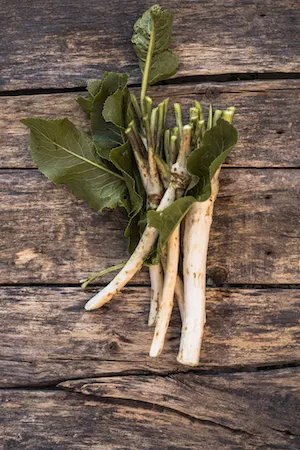
Mustard oil glycosides, such as horseradish (Armoracia rusticana) and nasturtium (Tropaeolum majus L.), help reduce urinary tract infections, according to research studies.
The effectiveness of nasturtium and horseradish against an increased tendency for urinary and respiratory tract infections is based on several mechanisms of action: On the one hand, the glucosinolates that release isothiocyanates (mustard oils) have a direct antibacterial, antiviral and fungistatic effect. Since the mustard oils are already completely absorbed in the small intestine, there is no evidence of resistance or damage to the body’s natural intestinal flora. Furthermore, non-specific irritant effects limit or inactivate the production of bacterial toxins, and non-specific irritant effects usually strengthen the immunological defences of the human organism.
A study[3] on the antibacterial effect of Angocin® Anti-Infekt N, a remedy with herbal active ingredients containing mustard oils from nasturtium and horseradish root, on 13 therapeutically relevant bacterial species causing infections of the draining urinary tract or respiratory tract, was presented by PD Dr Uwe Frank, senior physician at the Institute of Environmental Medicine and Hospital Hygiene. The aim was to test whether the antibacterial properties of mustard oils postulated in studies of the 1950s and 1960s are reproducible and whether the combination of nasturtium and horseradish root leads to a broader spectrum of action than the active substances that have been studied individually so far. The study showed that mustard oils from nasturtium and horseradish have a strong antibacterial effect on both gram-positive and gram-negative bacteria, depending on the amount of active components.
According to Prof. Dr. Karl Friedrich Klippel, former chief physician of the Clinic for Urology at the General Hospital Celle, in addition to the antibacterial effect, viruses such as bronchitis-causing rhinoviruses and fungi are also suppressed. In a randomised double-blind study with over 1,000 patients suffering from sinusitis, bronchitis or urinary tract infections, a composition of 200mg capuchin herb and 80mg horseradish root showed the same efficacy as antibiotics, without any significant adverse effects. In contrast to antibiotics, the development of resistance or multi-resistant bacteria is not to be feared. In addition, the therapy is less expensive.
Cranberry extract – Increase bladder resistance after cystitis.

Prevent the bacteria from settling in – It seems that individual bacteria can settle in the bladder lining, which can lead to recurrent urinary tract infections. When the immune system is weakened, e.g. due to stress or a cold, the microorganisms multiply rapidly, which can lead to a new outbreak of the disease. With the help of an anti-adhesion mechanism, secondary plant substances from cranberries, the proanthocyanidins, can prevent Escherichia coli from docking to the mucous membranes of the urinary tract once the germs have entered the bladder. These proanthocyanidins are polyphenolic flavanols, and in cranberries they are mainly oligomers of catechin and epicatechin, which are also called condensed tannins because of their protein-denaturing properties. They attach themselves to the fimbriae of the bacteria, i.e. to the appendages with which they can cling to the mucous membrane of the urinary tract. If this is no longer possible, the germs are simply expelled from the bladder with the next urine.
The normal intestinal and vaginal flora is not changed, as the cranberry extract only keeps the germs away from the bladder mucosa and does not kill them. In addition, vitamin C, zinc and selenium together should strengthen the immune system so that the bladder mucosa can rebuild, which takes about six months.
Vitamin C inhibits the growth of bacteria.

Vitamin C in larger doses, is recommended for bladder infections. As soon as symptoms are noticed, one gram of vitamin C is taken every 2 hours for 48 hours. This means 24 doses of 1 gram of vitamin C. The special feature of this form of therapy is its continuity, which means that it must also be taken at night. Many sufferers report a noticeable improvement after only 3 – 4 doses. Vitamin C in powder form is preferred to capsules because it is dissolved in water. This has the advantage that you also take enough liquid. In addition, the powder is usually considerably cheaper than capsules. Please be sure to read the background information on the continuous intake of vitamin C.
Cinnamon in combination with vitamin C has also proven itself as a home remedy. In the acute case of cystitis, take 4 grams of cinnamon in 200 ml of water throughout the day.
These medicinal herbs can provide you with helpful support
Rosemary,CentauryandLovageare among them Herbs that are also used in the treatment of cystitis. When urinating, the mixture relieves discomfort and burning sensation. Anti-inflammatory, diuretic and antispasmodic properties haveGoldenrod,OrthosiphonandRestharrow. The herbal remedies can also be used for prophylaxis to prevent cystitis from recurring. Another alternative areHibiscus and propolis preparations. They make the urine acidic, which inhibits the development of bacteria.

Bearberry leaves contain arbutin, which has a mild antibacterial activity due to its active metabolite hydroquinone. This effect can develop within the bacteria, therefore the pH of the urine has no influence on the function of arbutin. It is a widely held opinion that hydroquinone is only effective in urine with a low alkalinity level. However, germs do not like an acidic environment, which is why doctors recommend lowering the pH in cases of recurrent bladder infections. Propolis and Hibiscus can cause a slight acidification of the urine.
The recommendation limits the use of bearberry leaf dry extracts to one month due to the arbutin concentration. Sensitive persons in particular often have gastrointestinal problems due to the high tannin content, or suffer from nausea and/or vomiting.
What else you should consider
Those affected can also help themselves by taking simple measures to relieve the symptoms. During an acute bladder infection, it is very important to drink enough fluids – at least two to three litres per day – and to empty the bladder regularly. This way, the bacteria can be quickly pushed out of the irritated bladder. The ÁYIO-Q Centre of Vitality offers the ÁYIO-Q drinking water cure in its online range for this purpose. Teas that have a diuretic effect on the kidneys and bladder are also good for this. During a bladder infection, it is also advisable to keep warm, e.g. with a hot water bottle, warm sitz baths or moist warm compresses in the bladder area. These heat treatments help to relax the bladder muscles and relieve the discomfort.
Right diet can help with cystitis.
The goal of nutritional therapy is to reduce inflammation in the body while strengthening the immune system. An anti-inflammatory diet can help you feel better for longer.
Anti-inflammatory foods like:
- Vegetables
- Fruits
- Spices like turmeric, ginger and chilli
- Oils (Omega-3 fatty acids) such as linseed oil, rapeseed oil, walnut oil or hemp oil.
- but especially fatty sea fish such as salmon, mackerel or herring
can help relieve symptoms and should be consumed regularly. Meat and egg yolks, on the other hand, should be consumed in moderation as they contain pro-inflammatory substances, especially pork.
Sugar as well as many ready-made products such as fruit yoghurts and juices should be avoided. The emulsifiers E433 and E466, which are often used in foods to increase consistency and shelf life, are suspected of causing mucous membrane irritation.
Probiotics such as lactic acid bacteria and prebiotics such as dietary fibre are indicated to strengthen the immune system and rebuild damaged gut flora.
Regular exercise, preferably in the fresh air, also strengthens the entire organism. It is recommended to walk between 8,000 and 10,000 steps every day.
What Prevention is useful for cystitis?
Following a few rules and behaviours can help you avoid cystitis. Not only should you drink more, but you should also urinate and groom yourself appropriately and dress properly. When urinating, make sure you do not hold your urine for too long and empty your bladder thoroughly. The bladder is tubular and not spherical. When you urinate, the bladder is often bent, which means that the urine cannot flow out completely. There is always a risk of infection from residual urine. To avoid residual urine, you should stand up briefly after going to the toilet. The bladder then assumes a different posture than when sitting, so that the residual urine can flow out. Women should wipe themselves with toilet paper from front to back, from the vagina to the anal area, during toilet hygiene. They should also go to the toilet immediately after sexual intercourse.
Excessive body care with too much soap should be avoided, as it damages the natural acid mantle of the skin, making it easier for germs to penetrate and multiply. Hypothermia in the pelvic area can be avoided in any case by wearing suitable clothing and underwear. In addition, the wet swimming costume should be changed as soon as possible after swimming. Enough sleep and relaxation also promote healing. Allow yourself rest and stay in bed.
Cystitis is not transmissible. However, pathogens that cause symptoms similar to cystitis can be transmitted during sexual intercourse. A medical examination will reveal the cause of the problem.
Using sperm-killing lotions and gels as well as a diaphragm can damage the protective bacteria in the intimate area and cause bladder infection. A condom is a fantastic choice for women who experience this on a regular basis. It keeps germs out of the urinary system.
Bladder Inflammation – When the Body and the Psyche “Burn”.
The bladder is burdened by fear and anger. As the saying goes, “I pee my pants with fear”. When you are angry, you feel “pissed off”. For some people, psychological problems even exacerbate or cause bladder weakness.
Most women’s and men’s bladders check in practically every hour before a job interview, presentation or exam, whether they have a bladder infection or not. This can be explained by the fact that the bladder is largely controlled by the autonomic nervous system. When you are excited, not only do your heart rate and sweat production increase, but you also have to go to the toilet more often.
Cystitis, like any other disease, must be assessed individually. In addition to the physical factors, the psyche can also play a more or less important role depending on the situation. Everyone should assess for themselves or in cooperation with their therapist whether certain factors apply and can be associated with cystitis. For example, it can be helpful to pay attention to temporal connections.
Could it be that cystitis only occurs in times of high stress, when certain stresses are on the agenda…? It is thought that stress damages the immune system and makes infections more likely.
In addition, acute emotional stress has been found in rats to activate mast cells in the bladder wall, which are involved in the defence against infections and allergic reactions. In addition, unconsciously tense muscles in the pelvis or pelvic floor can impair blood circulation and thus the bladder’s defences, which promotes recurrent bladder infections.
When you are stressed, your bladder is unlikely to empty completely, allowing germs to thrive in the urine residue. If you think stress is a factor in your situation, you should review your circumstances and make changes if necessary. If you are anxious, you should also pay attention to your eating habits.
Many people say things like “I’m anxious so I need chocolate or crisps”, which can promote “stress-related” cystitis!
Another consequence that is often observed in patients is the influence of the psyche on the intestine. People suffering from irritable bowel syndrome are particularly susceptible to this. Stress, for example, can influence the contraction of the intestinal muscles and the intestinal flora.
In times of excitement and stress, frequent bowel movements or constipation often occur. If the intestines are overloaded (dysbiosis) and no longer function properly due to constant stress, the vaginal environment suffers, which can lead to alkaline vaginal discharge.
Recommendation against stress: A wonderful way to reduce stress is the ÁYIO-Q breathing exercise, which is primarily against all kinds of pain, but also eliminates stress within a few minutes.
Permanent irritation or inflammation of the vaginal mucosa in the context of chronic vaginal dysbiosis leads to a local or nearby zinc deficit, which can spread to the bladder. To make matters worse, the bacterial ecology in the intimate area (intestine, vagina) is disturbed, allowing pathogens to enter the urethra. As you can see, the relationships can sometimes be quite complicated. However, experience shows that such problems can be effectively treated with a nutrient-rich diet, tailored food intake and intestinal care.
Bladder infections are more common in women who retain their urine for a long period of time because they do not want to go to the toilet. The only thing that helps in this situation is to drink enough water and empty the bladder regularly.
Further connections between bladder infections and the psyche are seen by the representatives of the spiritual-psychosomatic view of diseases. Behind this is the idea that illnesses or symptoms are an expression of conflicts in our lives that we do not want to acknowledge or that show us where we are going in the wrong direction in life.
Insecurity or lack of self-confidence are often associated with the bladder. However, this does not mean that everyone who suffers from frequent bladder infections has a problem with their self-esteem. This is only one of many possibilities.
Other bladder disorders such as irritable bladder or incontinence are more likely to be associated with psychological problems than cystitis. Other factors such as diet, a disturbed environment, intestinal dysbiosis, etc. probably play a far greater role than the psyche in immunological weaknesses such as cystitis.
Recurrent bladder infections, on the other hand, can be a strain on the psyche. Think of the ladies who no longer dare to go to the swimming pool or sauna for fear of a bladder infection, or who fear a bladder infection at every sexual encounter and therefore consciously or unconsciously avoid intimate touching. Such women need immediate help in the fight against cystitis so that their relationships do not deteriorate. The daily intake of 1 gram of vitamin C enriched with cinnamon can work wonders preventively.
Other interesting articles related to: Bladder infections
- The fascinating Healing-Powers of water
- Acidic and alkaline nutrition in the light of quantum medicine.
- Vitamin D – The key to health and well-being
- Vitamin C – Effective support for the healing process.
- Omega-3 fatty acids – Why DHA and EPA are so important for us
Sources:
[1] Scholes D, Hooton TM, Roberts PL, Stapleton AE, Gupta K, Stamm WE. Risk factors for recurrent urinary tract infection in young women. J Infect Dis. 2000;182(4):1177-1182. doi:10.1086/315827
[2] Kranjčec, Bojana et al. “D-mannose powder for prophylaxis of recurrent urinary tract infections in women: a randomized clinical trial.” World journal of urology vol. 32,1 (2014): 79-84. doi:10.1007/s00345-013-1091-6
[3] Conrad, Andreas et al. “In-vitro studies on the antibacterial effectiveness of a combination of nasturtium herb (tropaeoli majoris herba) and sea radish root (armoraciae rusticanae radix) ”[In vitro study to evaluate the antibacterial activity of a combination of the haulm of nasturtium (Tropaeoli majoris herba) and of the roots of horseradish (Armoraciae rusticanae radix)]. Pharmaceutical Research vol. 56.12 (2006):842-9. doi:10.1055/s-0031-1296796
FAQ Bladder infection – Cystitis
Question: I have to go to the toilet all the time. Do I have a bladder infection?
Answer: When you have cystitis, you have to urinate frequently and may experience severe pain or a burning sensation. Not only do you then have to go to the toilet more often, but it is also more uncomfortable. When a woman’s bladder is almost or completely empty, she feels more pain.
Question: I am pregnant and feel like I am suffering from a bladder infection.
Answer: When you are pregnant, a seemingly harmless bladder infection can become a big problem. Bacteria in the bladder can travel unnoticed to the kidneys and cause renal pelvic inflammation. This inflammation can lead to considerable problems during pregnancy. Therefore, you should definitely have this clarified by a doctor.
Question: Are urinary tract infection and cystitis the same thing?
Answer: Cystitis and urinary tract infection are not two different diseases: Cystitis is a type of infection of the urinary tract. It occurs when the lower urinary system, especially the bladder, is inflamed.
Question: Symptoms of cystitis but none detected?
Answer: This could be interstitial cystitis (IC). The name “interstitial cystitis” indicates that it is not the mucous membrane of the bladder that is inflamed, but the deeper interstitial spaces in the bladder wall. Mast cells, special immune cells that are needed for the body’s own defence, play a key role in this. These mast cells cause an inflammatory reaction in the bladder mucosa, which leads to increased permeability, remodelling of the connective tissue and a decrease in bladder capacity.
